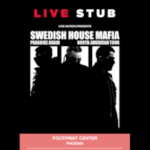Music NFTs
Benefits of Music NFTs to a Musician or Band
 Here at All About Blues Music we have made it our mission to help new and up and coming bands become more successful and find new audiences.
Here at All About Blues Music we have made it our mission to help new and up and coming bands become more successful and find new audiences.
One of the biggest challenges for any musician is to reach a point where they are making enough money to pay their bills and allow them work on their art full time.
We have been looking at many new and creative ways for musicians to make money and so it is no surprise that back in 2021 we should investigate NFTs (Non Fungible Tokens) and try to figure out how they can help musicians. In this article I would like to share some of these findings to help you decide if they are of value to you.
What Are NFTs
Music NFTs are a way for musicians to track the copyright ownership history of their digital files. This is done by attaching an NFT to the file, in the case of a music NFT a WAV file. The NFT can then be used to prove that the file is not a copy and that it is the original. Music NFTs can also be used to sell digital music files. When a buyer purchases an Music NFT, they are buying the right to use the file. The Music NFT can then be resold or transferred to another user. Music NFTs could become the standard way of selling and distributing music. This would allow artists to retain control over their work and ensure that they are compensated fairly for their art.
How can a musician make money from NFTs?
NFTs can be used to sell exclusive access to new music, or even offer custom-made tracks in exchange for cryptocurrency. By using platforms like Opensea a single instance or many thousands of copies of a piece of music can be made available for sale or auction. Although the selling platform, Opensea or similar, will take a small commission, the majority of the money will go directly to the creator, albeit in cryptocurrency.
Because of the inherent security and ownership tracking with NFTs the originator of the music will also receive a percentage of the resale price, again in cryptocurrency, commonly Ethereum.
This allows musicians to directly monetize their work, without having to establish a formalised contractual relationship with a record company or publisher.
NFTs can help prevent piracy and ensure that royalties are paid to the correct people.
This is because they use a special kind of security that makes it hard for people to copy or share music files without permission. NFTs use blockchain technology to make sure that people can't copy or share music files without permission. This way, musicians and bands can get the money they deserve for their music.
Blockchain is a way of keeping track of things. It's a way of making sure that when someone does something, like watch a movie or listen to music, they are only allowed to do it once. And it also makes sure that the right people get paid for what they do.
NFTs can be used to create digital rights management systems that protect music files from unauthorized copying or sharing.
Music NFTs offer a new and innovative way for artists to monetize their music.
NFTs can help manage and track royalties more efficiently than traditional methods, and they can also help reduce costs associated with distribution. NFTs offer a more secure and efficient way to distribute music files, and they can be used to create digital rights management systems that protect music files from unauthorized copying or sharing. Music NFTs provide a unique opportunity for artists to gain control over their music and create new revenue streams.
NFTs allow for equitable remixes, samples and collaborations with all parties being fairly rewarded.
Music NFTs are a new way for musicians to come together and create something truly unique. By teaming up with film-makers, game-makers, music supervisors, other artists, producers, and engineers, musicians can create Music NFTs that are one-of-a-kind.
Music NFTs are unique in that they contain both audio and visual elements. This allows artists to create multimedia experiences that are truly one-of-a-kind. As Music NFTs continue to gain popularity, we can only imagine the amazing new collaborations that will come from this burgeoning technology.
Music NFTs provide a unique opportunity for fans to engage with their favorite musicians in a new and exciting way.
In addition, Music NFTs also create an additional revenue stream for artists, which can be used to fund new projects or simply to support their existing work. Ultimately, Music NFTs offer a win-win situation for both fans and artists alike.
By allowing fans to edit and add to songs, musicians can create new versions of their music that are more popular and have a higher value. Additionally, by offering upgradeable NFTs, musicians can ensure that they continue to benefit from the popularity of their music. Upgradable NFTs allow musicians to distribute their music more efficiently and increase the value of their music. As a result, Music NFTs are a great way to encourage creativity and incentivize remixes.
NFTs can be used to promote new music, merchandise, or even concert tickets.
By allowing fans and collaborators to legally build atop of an existing piece of music, upgradeable NFTs provide a  unique and convenient way for artists to retain control of their work while still generating revenue from spin-off creations. Not only does this provide a more efficient and cost-effective solution for creating remixes, but it also gives artists the potential to profit from the creativity of their fans.
unique and convenient way for artists to retain control of their work while still generating revenue from spin-off creations. Not only does this provide a more efficient and cost-effective solution for creating remixes, but it also gives artists the potential to profit from the creativity of their fans.
Live Nation's recent announcement of their Live Stubs product is just the latest example of how Music NFTs are becoming more and more popular. With Live Stubs, fans can collect and display their ticket stubs in a new and exciting way. And because each Live Stub is a Music NFT, each one is completely unique and can't be replicated. As the popularity of Music NFTs grows, so do the opportunities for artists to create new and innovative ways to connect with their fans.
Problems with music NFTs.
There are a few potential problems with using NFTs to track music royalties.
First, NFTs are still a new technology and there are not yet many established standards for how they should be used. This could lead to confusion and errors in the tracking of royalties.
Second, NFTs rely on blockchain technology, which is not yet widely used or understood. This could make it difficult for some people in the music industry to adopt and use NFTs.
Third, NFTs could potentially be used to track other types of data about music files, such as who owns the copyright to a song, which could lead to privacy concerns.
NFTs and the environment.
The process of minting NFTs is highly energy intensive. Most NFTs are minted using the proof-of-work operating method, which uses large amounts of electricity. Any energy-intensive process, crypto-related or otherwise, can exacerbate climate change by adding to the atmosphere’s carbon dioxide emissions. However, there are other more environmentally friendly ways to mint NFTs—in particular, methods using proof of stake. By selecting more environmentally friendly methods to mint Music NFTs, we can help to reduce the impact of NFTs on our climate.
Music NFTs and the Future.
Predicting the future of any technology can be difficult, however all the industry experts who are are looking at the changing ways we are operating in the Digital World agree, whether they call it Web3 or the Metasphere, NFTs will play an important role.
As we have discussed Music NFTs are the perfect way to represent and track the ownership of digital assets in the new era of the internet. By using a public blockchain, they provide a secure and transparent way to do this without the need for third-party verification. This will be crucial to unlocking the full potential of Web3.
Non-fungible tokens are a key part of the Web3 infrastructure and will play a critical role in the development of decentralized applications (dApps). Music NFTs will be an essential part of this ecosystem, providing a way to represent and track the ownership of digital assets. In addition, they will also help to ensure that rights holders are properly compensated for their work. As more dApps are built, it will be increasingly important to have a way to represent and track the ownership of digital assets. Music NFTs provide a solution that is secure, transparent, and efficient.
Should you sell your music with NFTs?
Hopefully here I have given you enough information for you to make that decision. For us at All About Blues Music we are investing heavily to test these benefits of NFTs, take a look at our new web site designed to sell Music NFTs, Production Music NFT, you can also listen to some of the tracks we have listed on Opensea, not all Blues but here is one: Daddy's Little Girl.
The important point to remember about is that although it is relatively easy to create and list an NFT, this does not guarantee sales. In the same way you can have your music on other digital platform, Spotify, Youtube Patreon etc. it will still be your responsibility to find the right audience who want to buy and invest in your creations.
